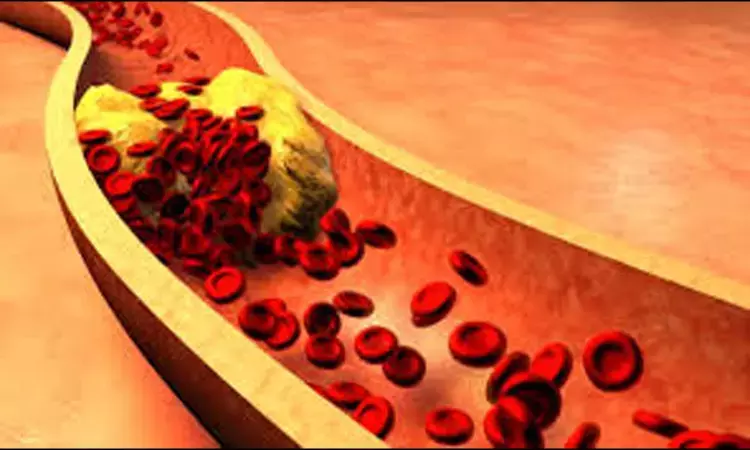- Home
- Medical news & Guidelines
- Anesthesiology
- Cardiology and CTVS
- Critical Care
- Dentistry
- Dermatology
- Diabetes and Endocrinology
- ENT
- Gastroenterology
- Medicine
- Nephrology
- Neurology
- Obstretics-Gynaecology
- Oncology
- Ophthalmology
- Orthopaedics
- Pediatrics-Neonatology
- Psychiatry
- Pulmonology
- Radiology
- Surgery
- Urology
- Laboratory Medicine
- Diet
- Nursing
- Paramedical
- Physiotherapy
- Health news
- Fact Check
- Bone Health Fact Check
- Brain Health Fact Check
- Cancer Related Fact Check
- Child Care Fact Check
- Dental and oral health fact check
- Diabetes and metabolic health fact check
- Diet and Nutrition Fact Check
- Eye and ENT Care Fact Check
- Fitness fact check
- Gut health fact check
- Heart health fact check
- Kidney health fact check
- Medical education fact check
- Men's health fact check
- Respiratory fact check
- Skin and hair care fact check
- Vaccine and Immunization fact check
- Women's health fact check
- AYUSH
- State News
- Andaman and Nicobar Islands
- Andhra Pradesh
- Arunachal Pradesh
- Assam
- Bihar
- Chandigarh
- Chattisgarh
- Dadra and Nagar Haveli
- Daman and Diu
- Delhi
- Goa
- Gujarat
- Haryana
- Himachal Pradesh
- Jammu & Kashmir
- Jharkhand
- Karnataka
- Kerala
- Ladakh
- Lakshadweep
- Madhya Pradesh
- Maharashtra
- Manipur
- Meghalaya
- Mizoram
- Nagaland
- Odisha
- Puducherry
- Punjab
- Rajasthan
- Sikkim
- Tamil Nadu
- Telangana
- Tripura
- Uttar Pradesh
- Uttrakhand
- West Bengal
- Medical Education
- Industry
TyG Index Found to Be Strong Predictor of Hypertension Risk, unravels study

The triglyceride glucose (TyG) index independently correlates with increased risk for hypertension across various threshold diagnostic values. This was found in study by Hua Hao and colleagues in the International Journal of General Medicine. Hypertension is one of the most alarming global health disorders. Metabolic disorders, through insulin resistance as an intermediate phase, have now been well elucidated to associate with hypertension.
Data was obtained from 4,028 participants who received annual health checks in 2019. Insulin resistance was estimated using the TyG index and TyG-BMI, calculated based on the levels of triglyceride (TG), fasting plasma glucose (FPG), and body mass index (BMI). Hypertension was defined based on two thresholds of diagnosis: 140/90 mmHg and 130/80 mmHg. Logistic regression models were applied to assess the relationship between TyG and hypertension. The analysis also used restricted cubic spline models to explore dose-response relationships. The population was stratified according to BMI categories, with a particular emphasis on those with a BMI of 24.0-27.9 kg/m².
Results
At the 140/90 mmHg threshold, the risk of hypertension was:
• 2.87 times higher (OR=2.87; 95% CI: 2.11-3.91) in the Q4 group of TyG compared to Q1.-
• 8.03 times higher (OR=8.03; 95% CI: 5.05-12.75) in the Q4 group of TyG-BMI compared to Q1.
At the 130/80 mmHg threshold, the risk of hypertension was:
• 2.93 times higher (OR=2.93; 95% CI: 2.34-3.68) in the Q4 group of TyG compared to Q1.
• wofold to 7.12-fold more risky (OR=7.12; 95% CI: 5.08-9.99) compared to the Q1 group of TyG-BMI for the Q4 group
Secondary Results:
• BMI 24.0-27.9 kg/m²
• The baseline characteristics of the participants were as follows:
• Q4 group of TyG had at the 140/90 mmHg threshold
• 2.79 times risk for hypertension and its OR=2.79; 95% CI: 1.67-4.66
• At the 130/80 mmHg threshold, the Q4 group of TyG was at risk for hypertension.
• 3.07 time risks and its OR=3.07; 95% CI: 2.05-4.60
TyG and TyG-BMI are powerful, independent predictors of hypertension in diagnosing different thresholds. Such findings serve to underpin the necessity for an early identification of such insulin resistance for its management to avoid both hypertension risk and other long-term cardiovascular outcomes.
Reference:
Hao H, Geng H, Ma M. Association Between Triglyceride Glucose Index and Hypertension According to Different Diagnostic Criteria. Int J Gen Med. 2025 Jan 6;18:43-53. doi: 10.2147/IJGM.S499194. PMID: 39801923; PMCID: PMC11720999.
Dr Riya Dave has completed dentistry from Gujarat University in 2022. She is a dentist and accomplished medical and scientific writer known for her commitment to bridging the gap between clinical expertise and accessible healthcare information. She has been actively involved in writing blogs related to health and wellness.
Dr Kamal Kant Kohli-MBBS, DTCD- a chest specialist with more than 30 years of practice and a flair for writing clinical articles, Dr Kamal Kant Kohli joined Medical Dialogues as a Chief Editor of Medical News. Besides writing articles, as an editor, he proofreads and verifies all the medical content published on Medical Dialogues including those coming from journals, studies,medical conferences,guidelines etc. Email: drkohli@medicaldialogues.in. Contact no. 011-43720751


